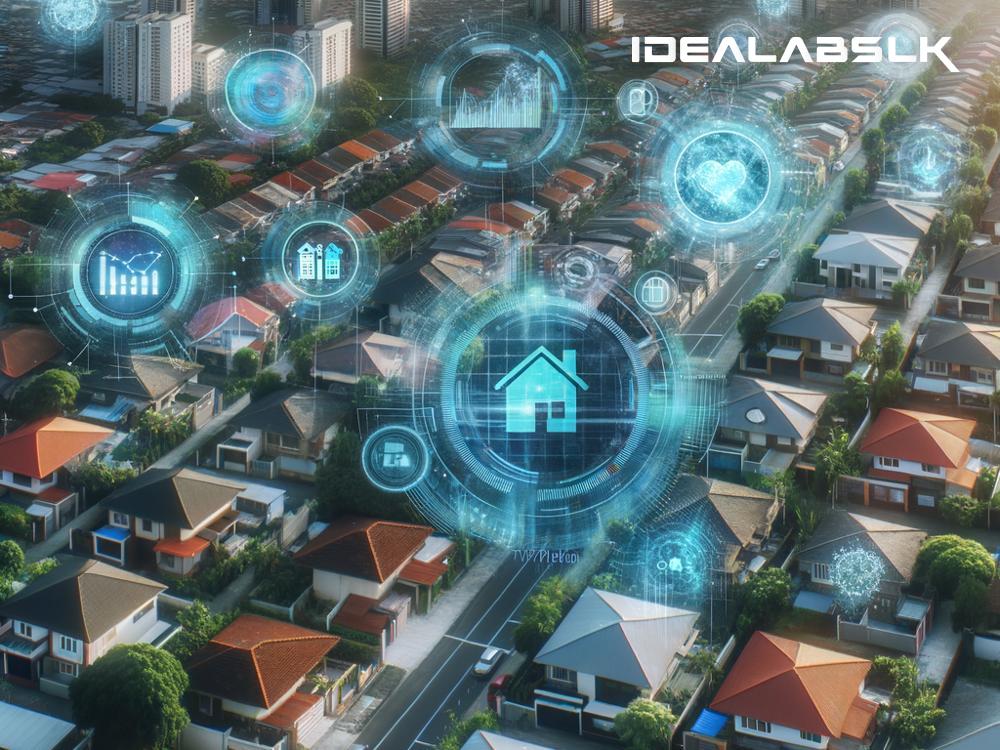AI Revolutionizing Property Risk Assessment: Simplifying the Complex
In the ever-evolving landscape of the real estate industry, property risk assessment stands as a crucial pillar, ensuring investments are sound and secure. Traditionally rooted in manual inspections and assessments, this critical process has been transformed with the advent of Artificial Intelligence (AI). AI, with its unparalleled ability to sift through massive datasets and identify patterns, is revolutionizing the way risk is assessed, making the process not just faster but also remarkably more accurate. Let's delve into the world of AI in property risk assessment and understand its impact in simple terms.
Understanding the Basics
Property risk assessment is essentially about determining how risky a property investment might be. Factors like location, building condition, environmental hazards, and market trends play a significant role in this evaluation. In the past, this involved a lot of legwork, paperwork, and human judgment, which, while invaluable, comes with its set of limitations, including potential for error and bias.
Enter AI – a technology that thrives on data. AI systems can analyze vast amounts of information from various sources, such as satellite images, historical market data, and environmental reports, quickly and accurately. This ability to process and learn from data in ways that humans cannot is what makes AI a game-changer in property risk assessment.
The Role of AI: A Deeper Dive
1. Enhanced Accuracy and Efficiency
AI tools use algorithms to predict property risks based on historical and real-time data. This means the system gets smarter over time, learning from new data to make more accurate predictions. This not only reduces the margin for error but also speeds up the assessment process dramatically.
2. Comprehensive Risk Analysis
AI can look at a broader range of risk factors than a human assessor might consider. It can easily integrate and analyze data from multiple sources, including emerging risks like climate change effects, providing a more comprehensive risk profile of a property.
3. Predictive Insights
One of the most significant advantages of AI is its predictive capability. By analyzing trends and patterns, AI can forecast future market changes, potential environmental hazards, or other risks, giving investors a forward-looking perspective that was previously hard to achieve.
4. Democratizing Data
AI tools can pull in data from publicly available sources, industry reports, and proprietary databases, making the property risk assessment process more transparent and accessible. This democratization of data helps smaller investors compete with larger entities, leveling the playing field in the real estate market.
The Human Touch Remains Essential
While the benefits of AI in property risk assessment are undeniable, it's crucial to remember that AI does not replace human judgment but rather enhances it. The insights provided by AI need to be interpreted and applied within the real-world context of each property, a task that requires human expertise and intuition.
Moreover, ethical considerations and biases in AI algorithms are areas that require careful oversight. Continuous monitoring and refining of these systems are necessary to ensure they serve their purpose without unintended consequences.
Looking Ahead: The Future of AI in Property Risk Assessment
As technology advances, so too will the capabilities of AI in this field. We can anticipate even more sophisticated analysis tools, incorporating newer types of data, such as social media trends or the economic stability of a region. IoT (Internet of Things) integration can provide real-time data from properties, further refining risk assessments.
The integration of AI in property risk assessment is creating a paradigm shift, making the process not only more efficient but also more dynamic and forward-thinking. For investors, this means a higher degree of confidence in their decisions. For the industry, it heralds a new era of innovation and competition. And for society, it promises a more stable and resilient real estate market.
In conclusion, AI is not just a tool but a transformative force in property risk assessment, redefining what's possible and setting new standards for accuracy, efficiency, and insight. As we move forward, harnessing this technology responsibly and creatively will be key to unlocking its full potential, ensuring that the future of real estate investment is both bright and secure.

